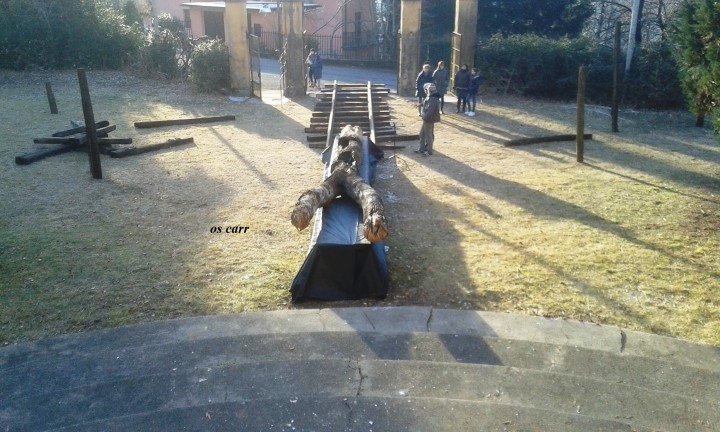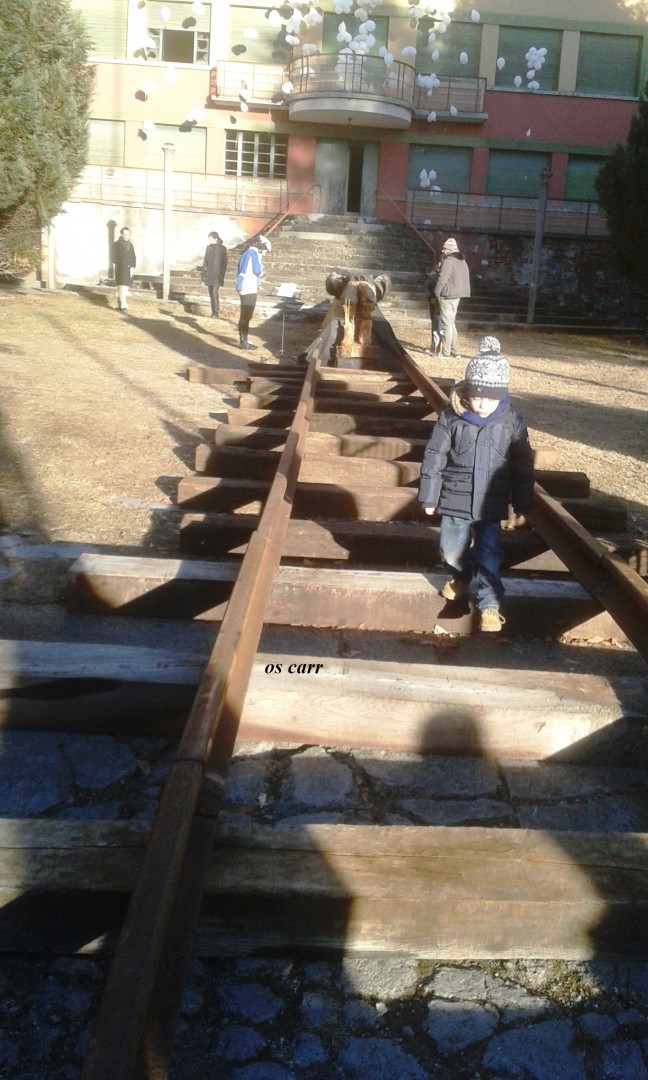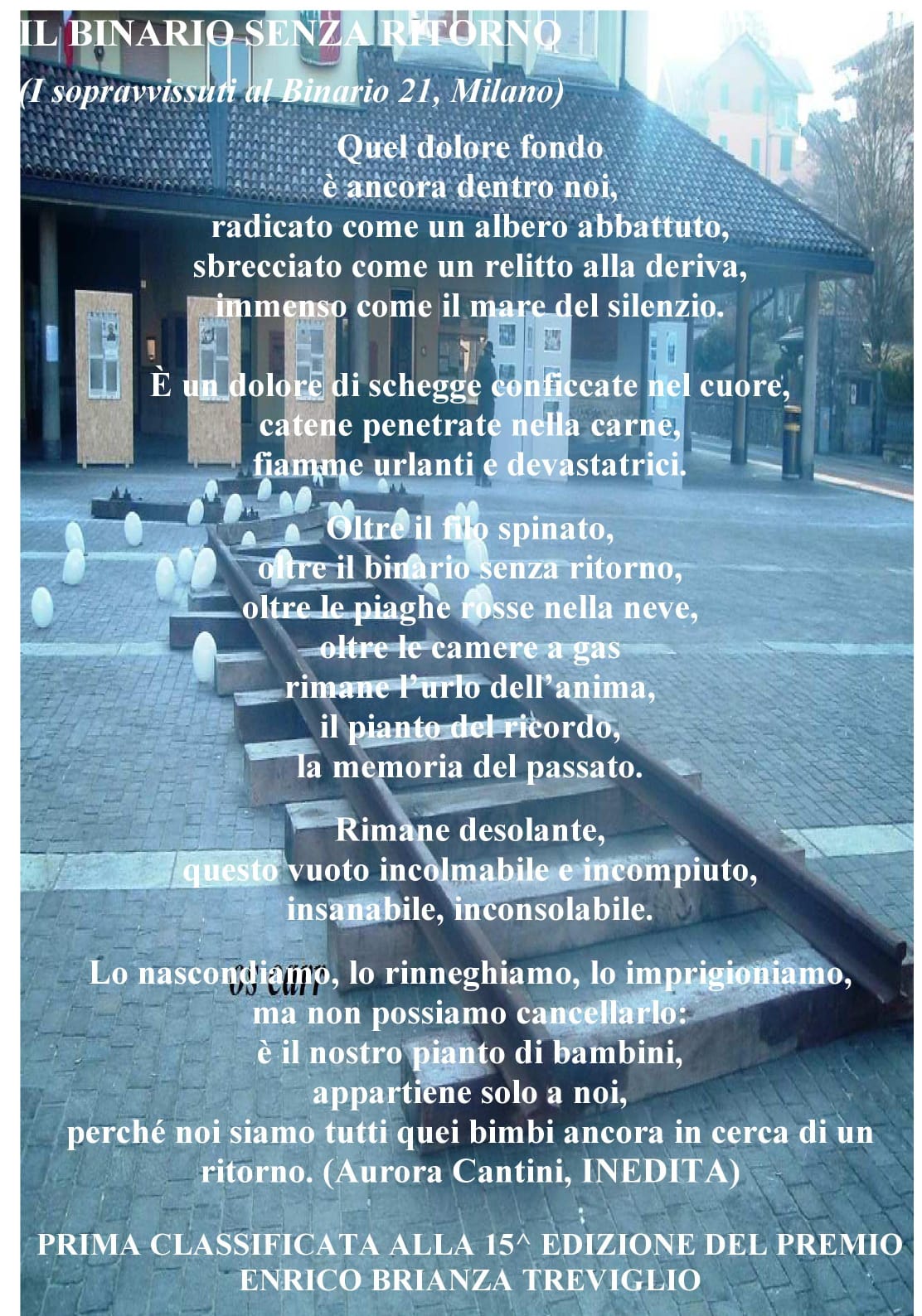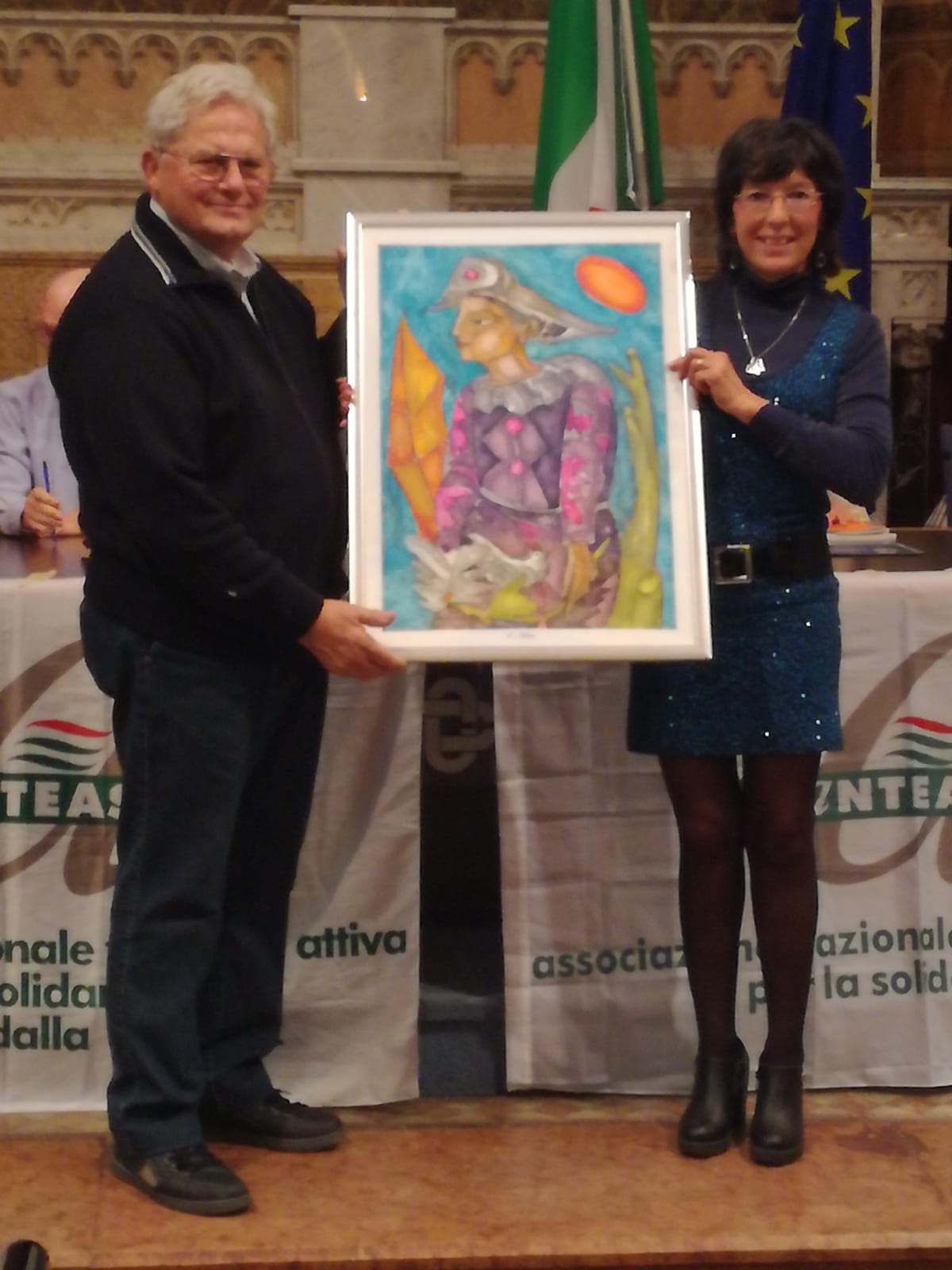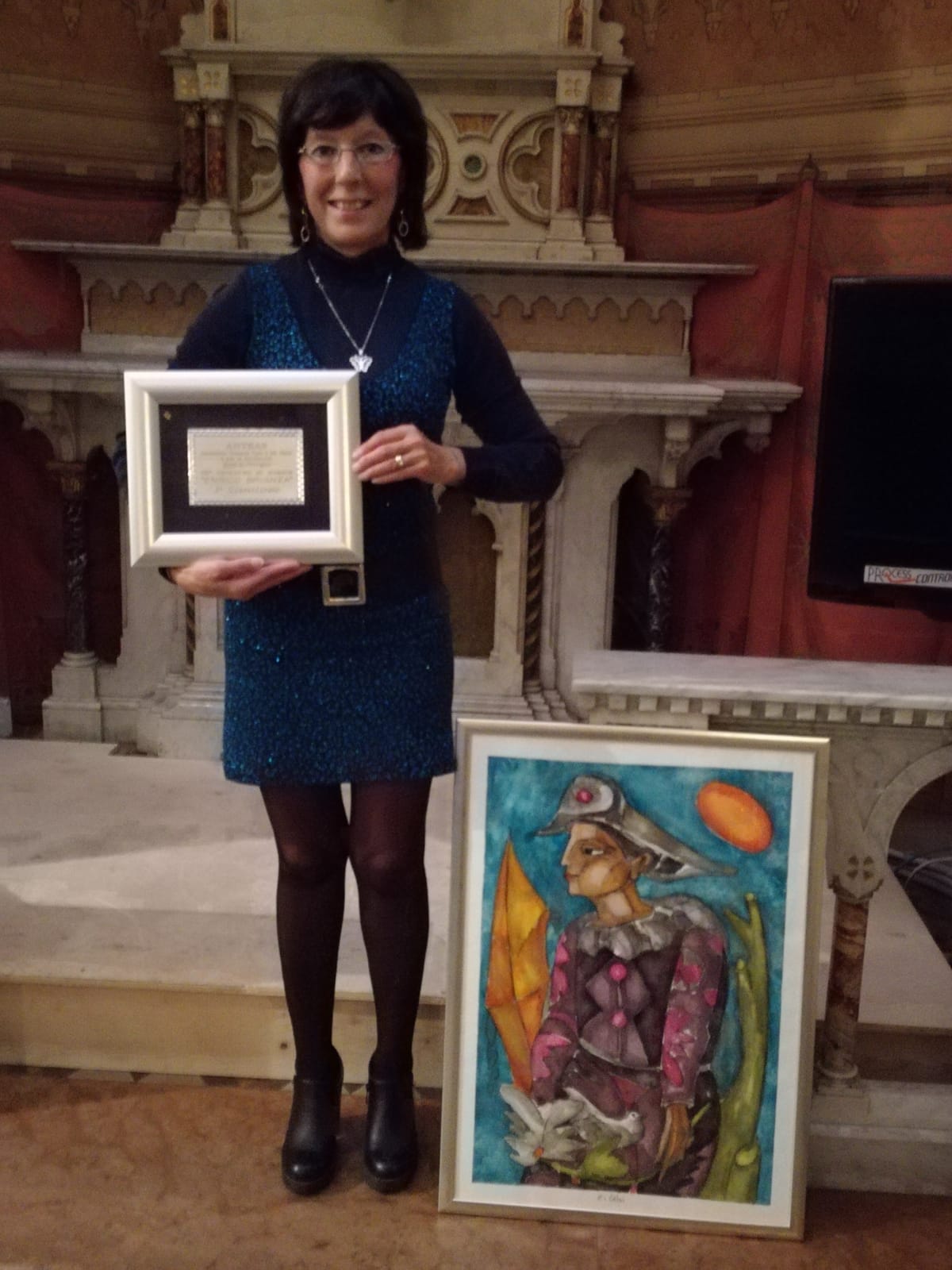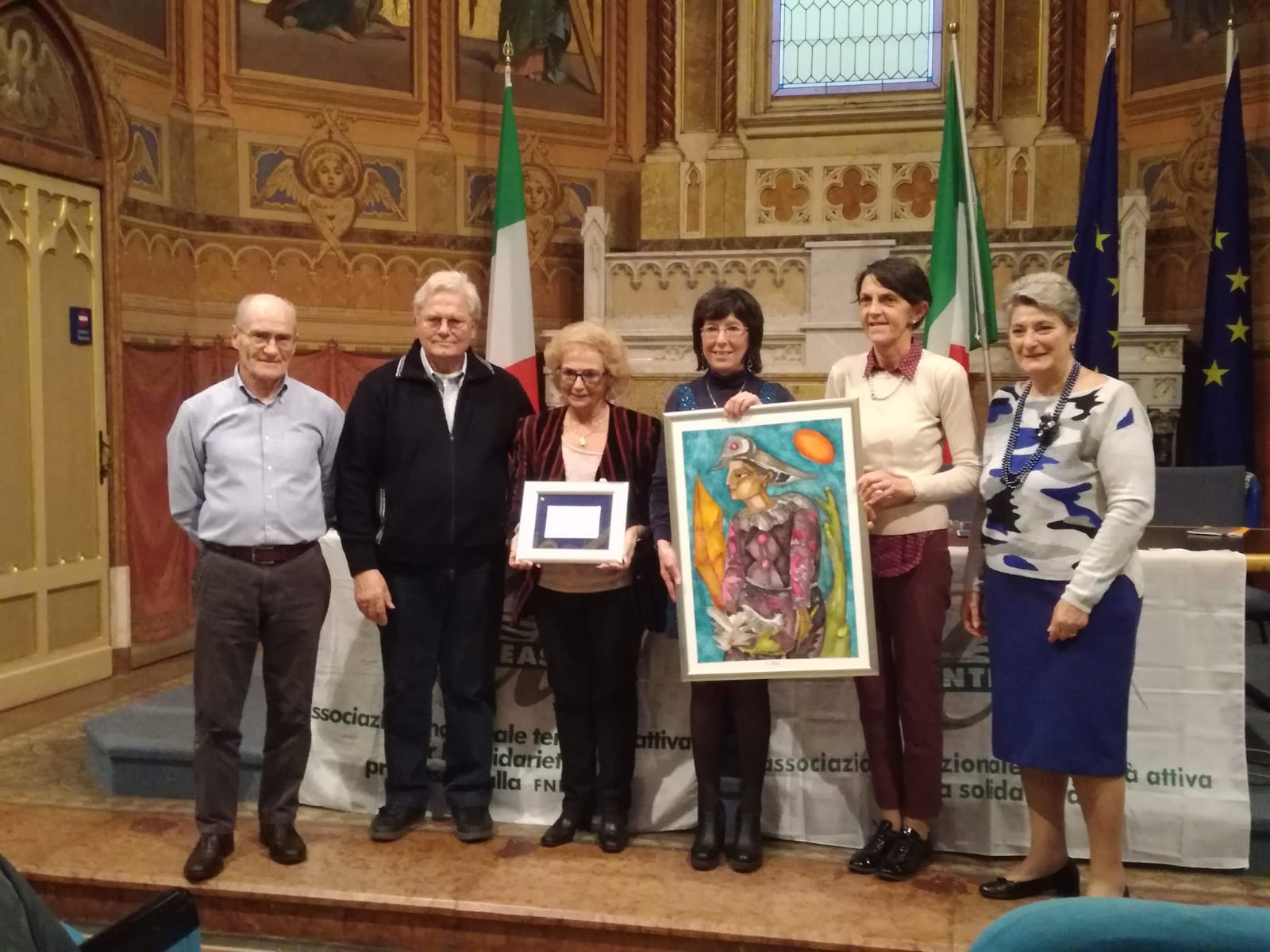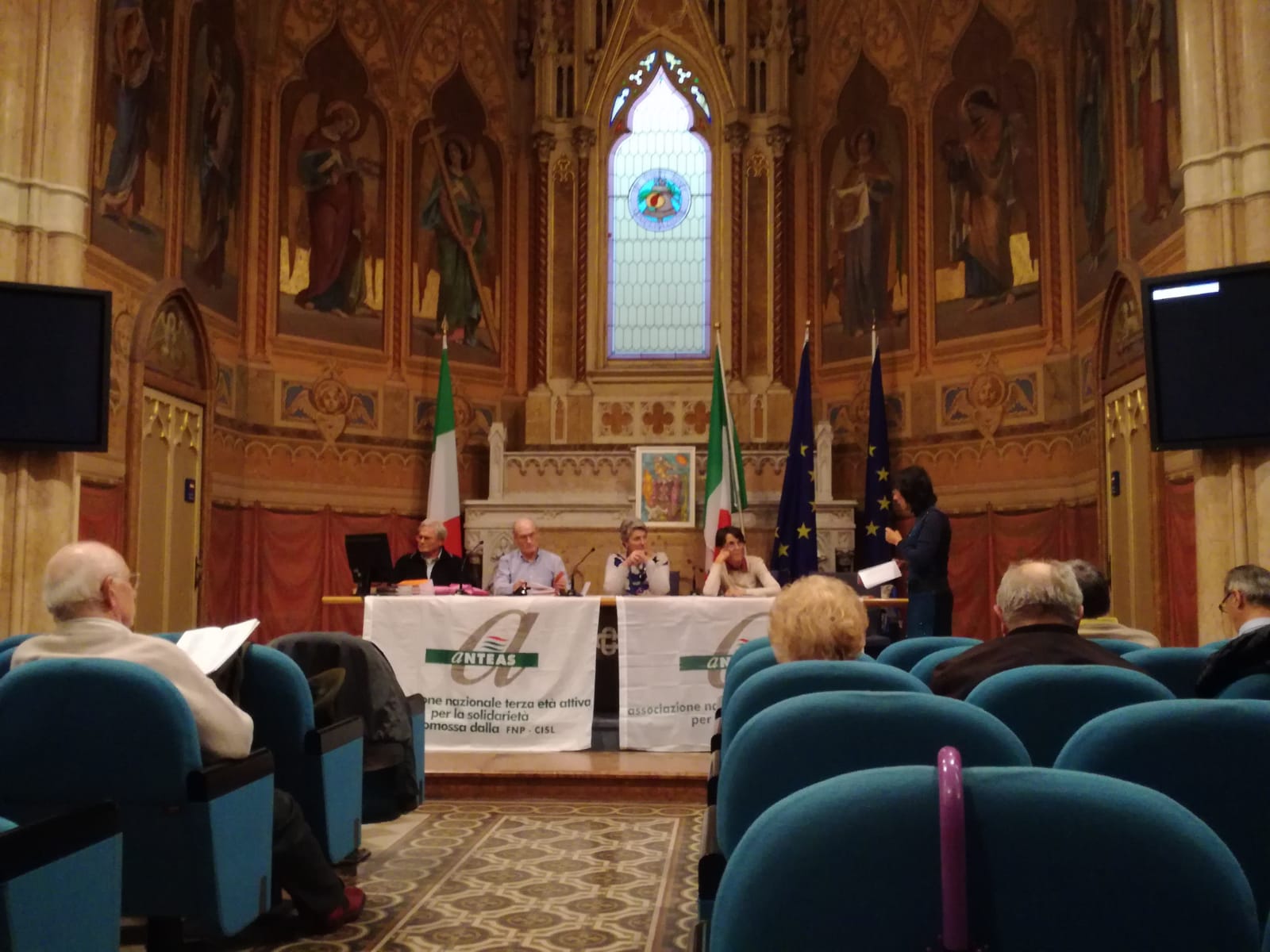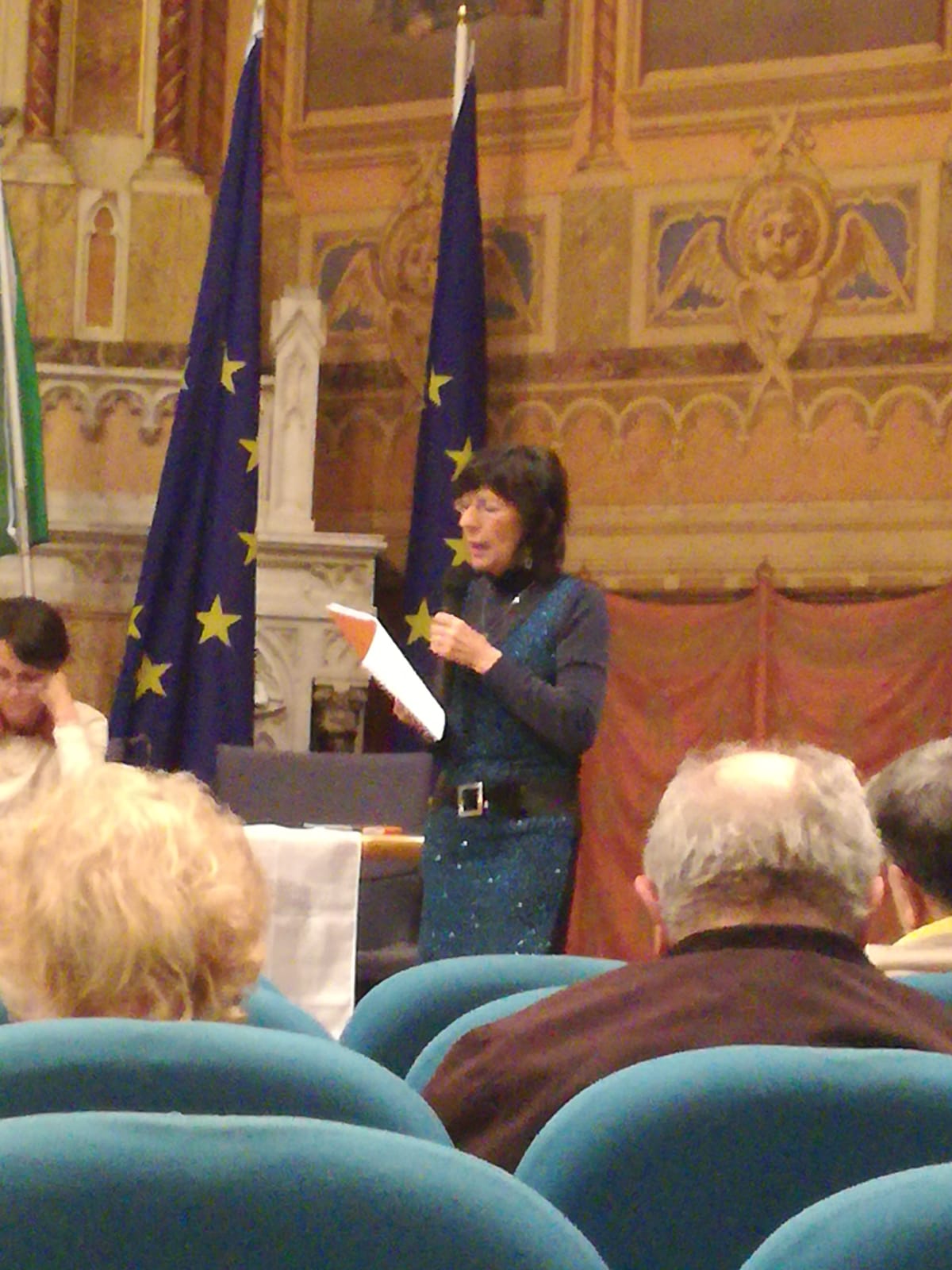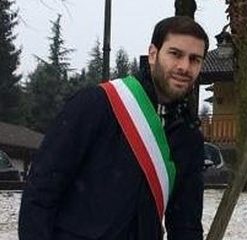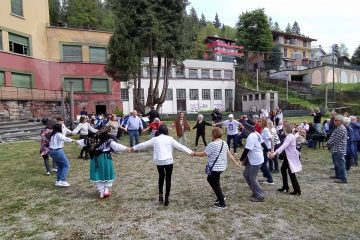|
(The survivors of Binario 21, Milan) That pain in the background It is a pain of splinters stuck in the heart, Beyond the barbed wire, It remains desolating, We hide it, we deny it, we imprison it, (poem by Aurora Cantini) |
Poetry written by Aurora Cantini on the occasion of Memory Day 2016 in Selvino.
At the entrance of Sciesopoli there was a work of art, the installation “Wrecks” created by the artist from Bergamo Ivano Parolini with the collaboration of the sculptor Giampaolo Pasini: https://youtu.be/ZPPxlXoMFAM
Many young people and visitors in front of the abandoned Sciesopoli, the empty windows, the chipped doors, its shattered walls.
Many in front of the fifteen-metre track, the symbol of deportation, of the non-return, placed in the courtyard where the children used to play.
So many in silence in front of the chains of white balloons soaring into the sky to symbolize those who never returned from the extermination camps.
Next to the track, a centuries-old tree cut down, carved and burned to represent the dying man, racial persecution, torture and annihilation.
https://acantini.altervista.org/giornata-della-memoria-2016-a-sciesopoli-selvino-il-binario-del-non-ritorno/
Poetry won first prize at the 15th edition of the competition “Enreico Brianza 2018” in Treviglio (Bergamo).
The committee, chaired by Luigi Cervi, head of ANTEAS Onlus (National Association of Third Active Age for Solidarity, Treviglio area), composed of prof. Battista Regonesi, prof. Antonella Barazzetti, prof. Fortunata D’Amato, prof. Chiara Finardi, Igino Bezza and Ezio Zanenga, expressed the following opinion:
When we think of the children who used to get on the death train to the extermination camps at Binario 21 of Milan’s Central Station and never returned, we must all be “surviving children” with that deep pain… as “immense as the sea of silence”.
In our minds emerge the sufferings suffered by these innocent “beyond barbed wire, beyond the red sores in the snow, beyond the gas chambers” and in us remain only “the cry of memory and the memory of the past”.
The richness of the content, the refined language but simple and poetic at the same time, offer very strong images and create endless emotions that make this poetic composition very beautiful.

